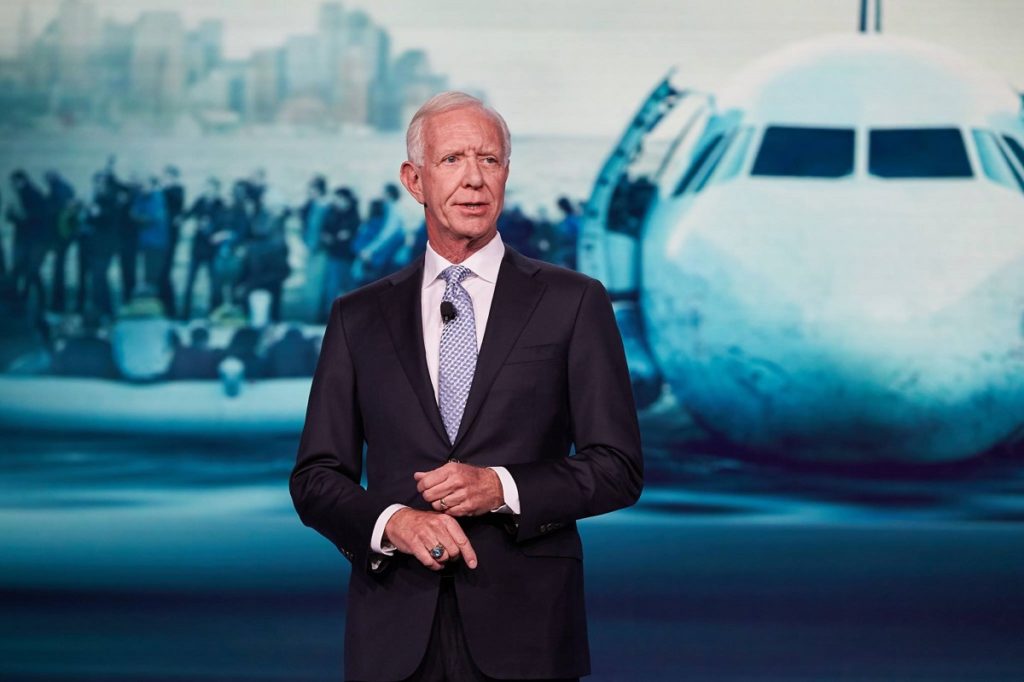When I first saw the headline—Hero Pilot Captain Sully Shares Terrifying Theory on Why DC Plane Crash Happened—I nearly dropped my phone. If there is one person whose insight on aviation disasters carries immense weight, it is none other than Captain Chesley “Sully” Sullenberger. Sully, as he is affectionately known, is the man behind the legendary emergency landing on the Hudson River in 2009, a heroic feat that saved the lives of all 155 passengers and crew on board. His unmatched experience and level-headed approach to crisis situations have earned him widespread respect in both the aviation industry and the public sphere.
Now, Sully is sounding the alarm over the recent tragic mid-air collision near Washington, D.C., which resulted in the loss of 67 lives. In a statement that has captured national attention, the former airline captain and aviation safety expert voiced concerns about the dangers associated with nighttime flights over water, a factor he believes may have played a crucial role in this devastating accident.
Sully’s theory is rooted in well-documented aviation challenges that pilots face during nighttime operations over water or unlit terrain. These conditions can create a phenomenon known as “spatial disorientation,” where pilots lose the ability to perceive their altitude, speed, or orientation in the absence of visible landmarks. In the dark, even seasoned pilots can be deceived by their own senses, leading to potentially fatal errors.
“Night flying over water is inherently dangerous, even for experienced crews,” Sully explained in an interview. “Without visual references, it becomes much easier to become spatially disoriented. That’s why training and strict adherence to instrument flight procedures are absolutely critical in these situations.”
Sully further highlighted the importance of technology and teamwork in preventing such disasters. Modern aircraft are equipped with sophisticated navigation systems designed to help pilots maintain situational awareness even in challenging conditions. However, these systems are only effective when pilots are fully trained and vigilant in their use.
“Pilots must be trained to trust their instruments and disregard what their body might be telling them,” he emphasized. “The human senses are not reliable when it comes to flying at night or over featureless terrain.”
Initial reports from aviation investigators indicate that the DC plane crash occurred in conditions that would have been particularly challenging for the flight crew. Witnesses described seeing the aircraft descending rapidly before the collision, suggesting that one or both pilots may have lost situational awareness.
Investigators are now closely examining the flight data recorders and cockpit voice recordings to determine what went wrong. While it’s too early to draw definitive conclusions, Sully’s insights underscore the critical need for improved safety measures, especially for flights operating in high-risk environments.
Aviation experts have long advocated for additional training and technological advancements to mitigate the dangers of nighttime flying. Enhanced simulator training that replicates night and over-water conditions, as well as advancements in heads-up displays and terrain awareness systems, could significantly reduce the likelihood of future accidents.
In addition to technical solutions, Sully called for a renewed focus on crew resource management (CRM), a training methodology that emphasizes teamwork, communication, and decision-making in the cockpit. “Effective CRM can mean the difference between life and death,” he said. “Pilots need to be able to communicate clearly and work together seamlessly, especially in high-stress situations.”
The DC plane crash is a sobering reminder of the inherent risks involved in aviation, particularly under challenging conditions. While modern air travel is statistically safer than ever before, accidents like this one highlight the need for continuous improvement in training, technology, and safety protocols.
Sully’s voice in the aftermath of this tragedy serves as a call to action for the aviation industry. His decades of experience and commitment to safety make him a powerful advocate for change. “We must learn from every accident,” he urged. “It’s our responsibility to honor the lives lost by making sure we do everything possible to prevent similar tragedies in the future.”
As the investigation into the DC crash continues, the aviation community and the public alike will be watching closely. One thing is certain: Captain Sully’s insights and warnings will not be ignored.
